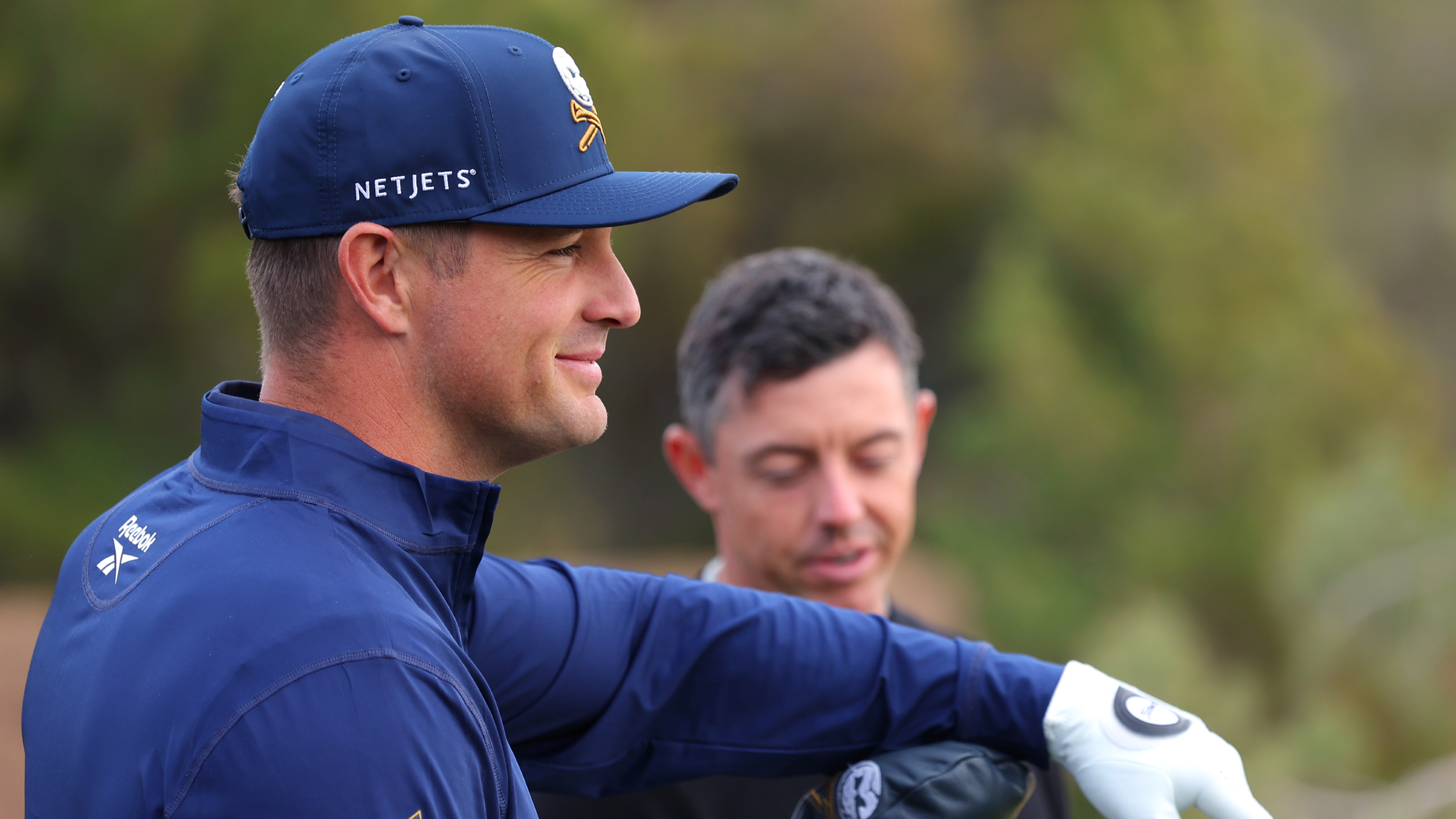Golf Monthly Editor's Letter March 2014 Issue
Golf Monthly Editor's Letter for the March 2014 issue, includes Michael Harris giving his thoughts on the past month and what can be found in the March 2014 issue


Golf Monthly Editor's Letter March 2014 Issue
Editor's Letter March 2014 Issue
Regular readers of my letter will know I rarely file my copy any earlier than the last minute, and this issue is no exception.
But less than 24 hours before the page had to be at the printers I have to confess I didn’t actually have anything to write about. By way of mitigation, I’ve had very little in the way of golfing inspiration.
I’ve managed just 27 very sodden holes of golf in the past six weeks, the European and PGA Tours have yet to kick into life, I haven’t changed any of my equipment since November last year, and if the 27 holes are anything to go by, I certainly haven’t found the secret to executing the 40-yard pitch.
Thankfully, salvation appeared in the form of an industry round table I’d been invited to.
More often than not at these sessions we end up telling each other what we already know, but this one was different.
Get the Golf Monthly Newsletter
Subscribe to the Golf Monthly newsletter to stay up to date with all the latest tour news, equipment news, reviews, head-to-heads and buyer’s guides from our team of experienced experts.
The discussion was led by Syngenta, a leading supplier of solutions to golf courses, which had commissioned a large-scale research project on how to grow the game in the UK.
The most eye-opening stat in the survey was that there could be as many as 8.5 million people in the UK interested in taking up golf.
If only 20 per cent of that number actually became golfers then the game would be in a very healthy position indeed.
But how do we go about attracting them? Well, thanks to Syngenta and its research company GfK, we now have some hard facts to work with.
The big difference between this survey and others I’d seen before was that nearly two thirds of the 3,500-plus respondents were non-golfers, but as they had the desire to take up a new sport and the time to play golf, they were genuine prospects, not couch potatoes unlikely to ever play.
So, rather than golfers telling us what initiatives they ‘think’ might get new people playing the game, these findings offer real insight from outside the game as to what golf needs to do in order to become a serious option for newcomers.
Clubs need to be friendlier, to encourage families, to not be so strict on dress codes and club regulations (including the use of mobile phones), to make it easier to learn the game and to offer greater flexibility in terms of membership.
This insight should be gold dust in the hands of those who run golf clubs, whether the club is in trouble and trying to reverse a declining membership, or whether it’s a forward-looking operation seeking opportunities for growth.
The really good news is that none of the above involves spending any money, merely a shift in attitudes.
Proprietary clubs can, of course, change things far more easily, as owners don’t have committees to answer to. However, it’s my view that the majority of clubs most in need of change in order to thrive, or even just remain viable, are traditional members clubs run by committees.
And this is where the elephant in the room becomes just too big to ignore. At present, the vast majority of committees are made up of long-standing members, and the decisions they make tend to be for the benefit of members like them.
And, to a point, that’s OK because these golfers will have been loyal supporters of the clubs, so have earned a right to have a significant say in the way a club is run.
They’re giving up their time to sit on a committee, some will have been members man and boy, most will have paid a joining fee, put money behind the bar, and represented the club in matches.
Without them the club wouldn’t be what it is today. But in this challenging landscape, it’s not about the past, it’s about the future.
So, you must ask yourself this question: are you really interested in protecting the future of your club and the game in general, or are you happy with the status quo because that’s what suits you?
I don’t pretend that changing established thinking and conventions will be easy but, in the cold, hard light of day, this is about safeguarding the future of the game. Surely nothing is more important than that?
Email: michael_harris@ipcmedia.com Twitter: @MikeHarrisGolf

Nick Bonfield joined Golf Monthly in 2012 after graduating from Exeter University and earning an NCTJ-accredited journalism diploma from News Associates in Wimbledon. He is responsible for managing production of the magazine, sub-editing, writing, commissioning and coordinating all features across print and online. Most of his online work is opinion-based and typically centres around the Majors and significant events in the global golfing calendar. Nick has been an avid golf fan since the age of ten and became obsessed with the professional game after watching Mike Weir and Shaun Micheel win The Masters and PGA Championship respectively in 2003. In his time with Golf Monthly, he's interviewed the likes of Rory McIlroy, Justin Rose, Jose Maria Olazabal, Henrik Stenson, Padraig Harrington, Lee Westwood and Billy Horschel and has ghost-written columns for Westwood, Wayne Riley, Matthew Southgate, Chris Wood and Eddie Pepperell. Nick is a 12-handicap golfer and his favourite courses include Old Head, Sunningdale New, Penha Longha, Valderrama and Bearwood Lakes. If you have a feature pitch for Nick, please email nick.bonfield@futurenet.com with 'Pitch' in the subject line. Nick is currently playing: Driver: TaylorMade M1 Fairway wood: TaylorMade RBZ Stage 2 Hybrid: Ping Crossover Irons (4-9): Nike Vapor Speed Wedges: Cleveland CBX Full Face, 56˚, Titleist Vokey SM4, 60˚ Putter: testing in progress! Ball: TaylorMade TP5x
-
 Rory McIlroy Explains His Extraordinary Pre-Round Routine (And It's The Complete Opposite Of Most Amateurs)
Rory McIlroy Explains His Extraordinary Pre-Round Routine (And It's The Complete Opposite Of Most Amateurs)McIlroy shares what goes into his usual pre-round routine at tournaments and what his timetable looks like before arriving at the first tee
By Jonny Leighfield Published
-
 ‘You Kinda Did It To Yourself’ – When Bryson DeChambeau Needled Rory McIlroy Over US Open Battle
‘You Kinda Did It To Yourself’ – When Bryson DeChambeau Needled Rory McIlroy Over US Open BattleMonths after Bryson DeChambeau’s defeat of Rory McIlroy in the US Open, the two met in Las Vegas, where the LIV Golfer had a lightning-quick response to a humorous comment from his rival
By Mike Hall Published